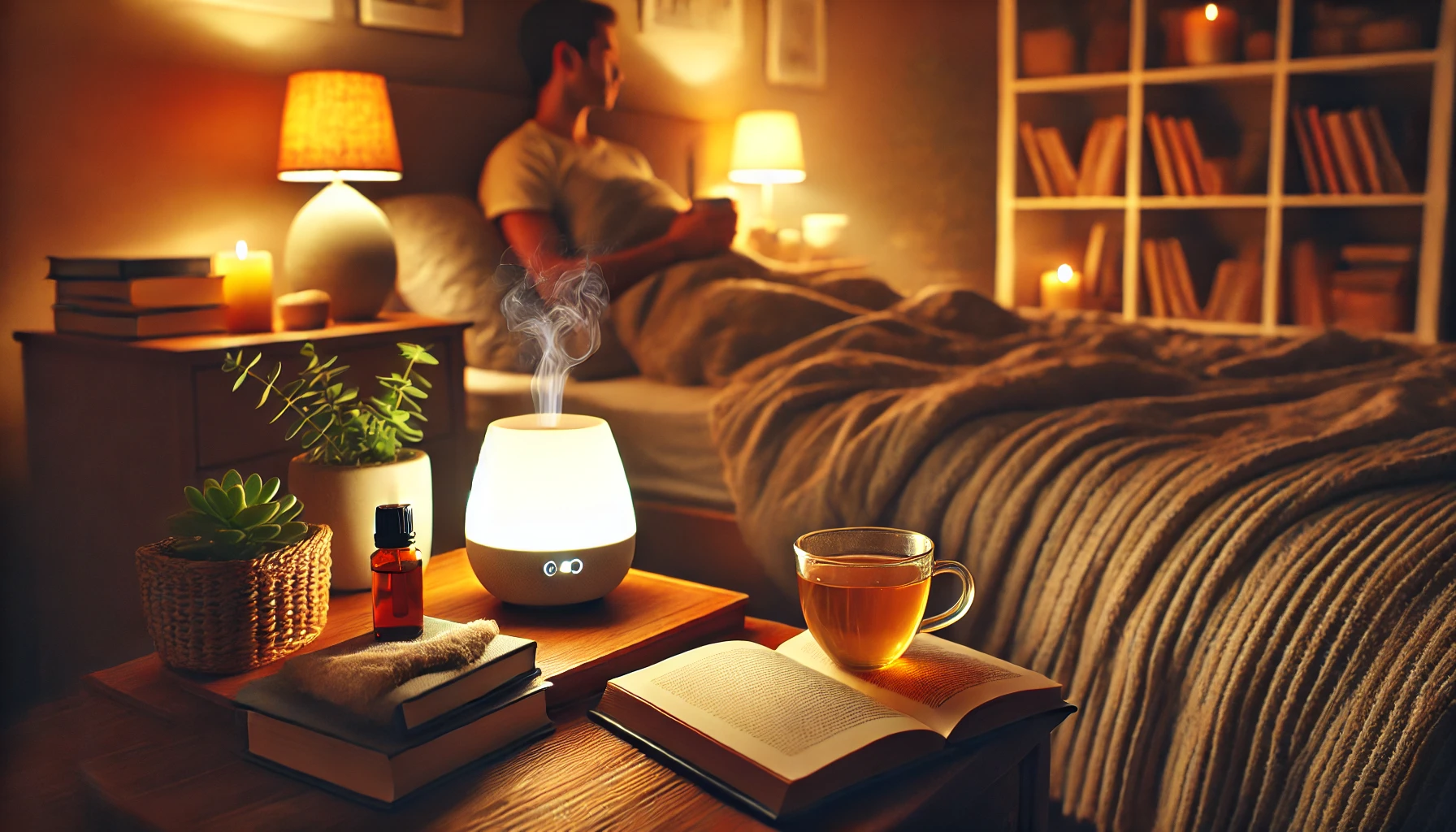A consistent nighttime routine is essential for quality sleep and overall well-being. Poor sleep habits can lead to fatigue, stress, and reduced productivity, while a well-structured evening routine helps you unwind, relax, and wake up feeling refreshed.
In this article, you’ll learn simple and effective steps to create a nighttime routine that promotes deep sleep and relaxation.
1. Set a Consistent Sleep Schedule
Going to bed and waking up at the same time every day helps regulate your circadian rhythm, making it easier to fall asleep and wake up naturally.
How to establish a sleep schedule:
✔ Choose a fixed bedtime and wake-up time, even on weekends.
✔ Set a reminder 30–60 minutes before bed to start winding down.
✔ Aim for 7–9 hours of sleep per night.
Try this: Track your sleep patterns using an app or a sleep journal.
2. Reduce Screen Time Before Bed
Electronic devices emit blue light, which disrupts melatonin production (the sleep hormone), making it harder to fall asleep.
How to limit screen exposure:
✔ Avoid screens at least 1 hour before bed.
✔ Use blue light filters on your phone and computer.
✔ Switch to dim, warm lighting in the evening.
Try this: Read a book or listen to calming music instead of scrolling your phone.
3. Create a Relaxing Pre-Sleep Routine
Engaging in calming activities before bed signals to your body that it’s time to sleep.
Relaxation techniques before bed:
✔ Take a warm bath or shower to relax muscles.
✔ Do gentle stretching or yoga to relieve tension.
✔ Practice deep breathing or meditation for mental relaxation.
Try this: Establish a wind-down ritual with tea, journaling, or light reading.
4. Optimize Your Sleep Environment
Your bedroom should be a sanctuary for sleep, free from distractions and discomfort.
How to improve your sleep environment:
✔ Keep your room dark, cool, and quiet (use blackout curtains and white noise if needed).
✔ Invest in a comfortable mattress and pillows.
✔ Remove clutter and distractions to create a calm atmosphere.
Try this: Keep your bedroom for sleep and relaxation only—avoid working in bed.
5. Avoid Caffeine and Heavy Meals Before Bed
What you eat and drink in the evening affects your sleep quality.
Foods and drinks to avoid before bed:
❌ Caffeine (coffee, tea, chocolate) – can stay in your system for 6+ hours.
❌ Spicy or heavy meals – can cause acid reflux or discomfort.
❌ Alcohol – disrupts REM sleep, leading to poor rest.
Try this: Drink herbal tea (chamomile, lavender, or valerian root) for relaxation.
6. Practice Gratitude or Journaling
Writing down your thoughts before bed clears your mind and reduces stress.
Benefits of nighttime journaling:
✔ Helps process emotions and thoughts.
✔ Reduces anxiety and overthinking.
✔ Encourages a positive mindset before sleep.
Try this: Write down 3 things you’re grateful for before going to bed.
7. Use Aromatherapy for Better Relaxation
Certain scents help calm the nervous system and promote sleep.
Best essential oils for sleep:
✔ Lavender – reduces stress and anxiety.
✔ Chamomile – promotes relaxation and sleepiness.
✔ Sandalwood – helps quiet a busy mind.
Try this: Use an essential oil diffuser or spray lavender mist on your pillow.
8. Do a Gentle Nighttime Stretching Routine
Stretching before bed relieves muscle tension and stress, helping your body relax.
Simple stretches for better sleep:
✔ Child’s pose – stretches the back and hips.
✔ Seated forward bend – calms the nervous system.
✔ Legs-up-the-wall pose – improves circulation and relaxation.
Try this: Do a 5-minute stretch routine before getting into bed.
9. Listen to Calming Sounds or Sleep Stories
Soothing sounds help your mind unwind and prepare for deep sleep.
Best sleep sounds:
✔ Nature sounds (rain, ocean waves, forest ambiance).
✔ White noise or pink noise (reduces background disturbances).
✔ Sleep stories (guided audio designed to induce sleep).
Try this: Listen to a guided sleep meditation or audiobook before bed.
10. Avoid Overthinking and Let Go of Worries
Racing thoughts can keep you awake, making it harder to relax.
Ways to clear your mind before bed:
✔ Practice deep breathing or progressive muscle relaxation.
✔ Visualize a peaceful place (beach, mountains, or a cozy cabin).
✔ Remind yourself that worrying won’t change tomorrow—rest is more important.
Try this: If your mind is racing, write your thoughts in a “worry journal” to release them.
Final Thoughts
A good nighttime routine improves sleep quality, reduces stress, and boosts overall health. By creating a calming pre-sleep ritual, you can wake up feeling refreshed and energized every day.
Which nighttime habit will you start tonight? 🌙😊
